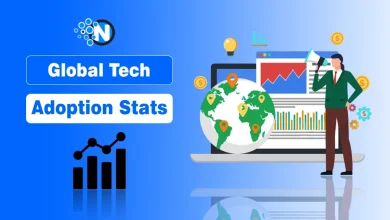The Role of AI and Big Data in Transforming Health Insurance Policies

The health insurance market in India is rapidly changing due to technological advancements. Insurance companies are adopting advanced big data, machine learning, and artificial intelligence (AI) solutions to increase productivity, better control costs & risks, and satisfy the needs of modern Indian customers in terms of coverage and support.
We’ll talk about how AI and big data can increase insurance availability in this blog throughout India’s socioeconomic range.
The Current State of Health Insurance Policies
The health insurance sector has relied heavily on legacy IT systems and manual processes. Policies have remained confined to fixed benefit plans that fail to meet customers’ evolving needs. Lengthy paperwork still dominates claims settlement, resulting in delays.
Lack of data insights has also led to challenges like insurance fraud and bleeding insurers of over crores annually. Issues like data silos and disjointed systems have restricted insurers from gaining a unified customer view as well.
However, the industry is now poised for a shakeup with AI and big data, promising enhanced efficiency and personalisation through automation and analytics.
How AI is Transforming Health Insurance
AI is a technology that enables computer systems to perform tasks generally requiring human intelligence. Insurers are deploying AI solutions for process optimisation and decision-making based on learning from data patterns. Some key applications transforming health insurance include:

Claims Processing and Fraud Detection
AI is automating aspects of claims management – from pre-authorisation checks to claims settlement. Natural Language Processing (NLP) extracts details from documents and forms to validate requests faster. Additionally, AI can study past claims data to identify suspicious patterns indicative of fraudulent activity. This improves fraud detection rates, saving insurers millions.
Personalised Insurance Plans
Using customer demographics, health records, lifestyle data, and more, AI systems can design custom insurance packages that are aligned with individuals’ unique profiles. This is a marked shift from the one-size-fits-all approach that has been predominant until now. The result is policies that meet specific needs and promote customer well-being.
Customer Service Enhancements
Chatbots and virtual assistants are upgrading customer experience. Using NLP and machine learning, these tools understand queries, provide answers, and handle requests seamlessly, letting human agents focus on complex complaints. This paves the way for 24/7 assistance.
The Impact of Big Data on Health Insurance
Big data is high volume, high velocity, and a big variety of information that can be analysed computationally to uncover patterns. By harnessing big data, insurers gain strategic insights to transform services. Significant applications consist of:
1. Data Collection and Analysis
Wearables enable the collection of real-time health data spanning heart rate, activity levels, and more. Combined with clinical and prescription information, powerful analytics unearth trends that boost population health efforts and shape products.
2. Improved Risk Assessment and Underwriting
Data algorithms analyse applicant health histories against millions of records to evaluate risks more accurately. This facilitates dynamic pricing and underwriting across market segments for customised premiums based on true exposure.
3. Population Health Management
Analytics identifies health challenges across member groups to guide outreach programs and interventions. This results in better health outcomes through lower hospital admissions and readmissions over time
4. Fraud and Abuse Detection
Insurers can analyse claims data to spot abnormal patterns indicative of fraudulent claims or provider abuse. This allows for preventative measures and significant cost savings.
5. Personalised Wellness Incentives
Based on an individual’s lifestyle and health data, insurers can offer customised fitness tracking programs, health challenges, and monetary rewards to motivate engagement. This aims to drive positive behaviour change.
6. Care Management Optimisation
Analytics helps identify high-risk individuals most likely to need care management services. Insurers can then target resources to these groups for proactive disease management and care coordination interventions.
7. Provider Network Management
Big data analytics evaluates providers based on cost-efficiency, outcomes quality, and patient satisfaction scores to shape more effective network options. This allows payers to connect members to optimal care settings.
Overcoming Key Challenges
While AI and big data unlock immense potential, insurers face barriers to seamless adoption:
- Data Quality Issues: Inaccurate, incomplete, or siloed data can undermine analytics and AI reliability. Insurers must invest in data management, integration, and governance.
- Lack of AI Expertise: Since AI model development requires cross-functional statistical and programming skills, most companies need help with a talent shortage. Hiring or upskilling staff in machine learning is essential.
- Algorithmic Bias: As AI systems learn from real-world data, they risk perpetuating societal biases present in the data. Continual evaluation for fairness is vital.
- Interpretability Issues: Insurers must ensure AI model decisions are explainable and transparent enough for human auditing, compliance, and troubleshooting. Lack of model interpretability impedes accountability.
Emerging Application Areas
In addition to current use cases, AI and big data could reshape other critical functions:
- Product Development and Pricing: Granular data insights allow insurers to conceptualise relevant products and dynamically optimise premiums based on risk exposure. This expands choice while maintaining profitability.
- Customer Acquisition and Retention: Insurers can efficiently target marketing by predicting individuals most likely to lapse or adopt insurance. Sentiment analysis also enables an understanding of satisfaction drivers.
- Process Automation: AI automates repetitive back-office tasks such as data entry, verification, reconciliation, etc. This boosts efficiency and staff bandwidth for high-skill activities.
Health Insurance Outlook
India’s health insurance penetration still hovers under 4%. However, rising costs, evolving customer expectations and supportive regulatory reforms indicate vast growth potential.
AI and big data allow insurers to capitalise on this opportunity through reduced costs, improved risk assessment, and highly customised products. As digital transformation accelerates, data-driven intelligent systems will become integral to long-term success and sustainability.
Final Words
India’s health insurance landscape is ripe for disruption through AI and big data analytics. By enabling hyper-personalisation, superior risk assessment, fraud reduction, and process automation, data-driven technologies can expand insurance access for underserved segments while boosting efficiency.
However, responsible adoption necessitates proactively managing biases, transparency, data quality, and change impacts. If embraced strategically with the customer at the core, insurers can unlock immense value – profitable business growth, satisfied customers and a healthier population.




